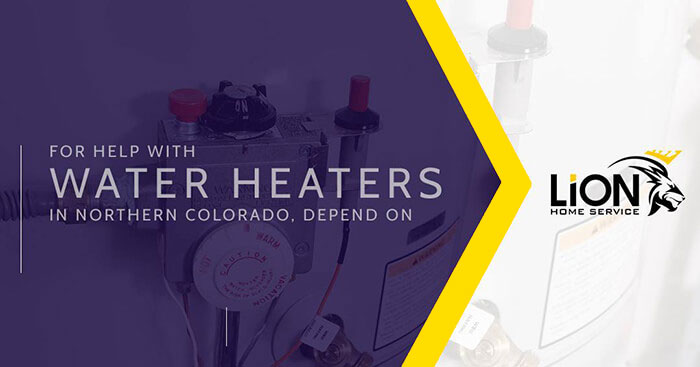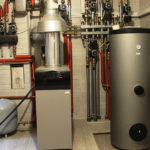The Right Water Heater Can Change Your Life
Chances are you never think about your water heater, that is, until you find the icy water of Antarctica pouring out of your shower head. We’ve all been enjoying a nice, warm, relaxing shower when bam, our water heater runs out of the good stuff. The only thing left to do is suffer through the icy embrace of tap water, right?
No!
If your water heater is no longer keeping up with the demand of your household, then it’s time to find one that will. The only problem is, where do you start looking for a new water heater? The world of water heaters can be exceedingly complicated for what is essentially a metal tank with a fire that heats it.
No to worry! The expert plumbers of Lion Home Service are here to guide you through the nonsense and help you find the water heater that best fits your needs.
With proper care and maintenance, new water heaters can deliver reliable service for a decade or more, which means that once you have your new one, you’ll be set for years to come.
What Is Your Water Usage?
When choosing a new water heater, the first thing to consider is its capacity for producing hot water. If you’re only heating water for a single person, yourself, then you may actually be better off using nothing but the sun’s glorious rays to warm your bathwater(no, seriously). However, families of 6 or more will need a water heater that can provide copious amounts of on-demand hot water.
To that end, before selecting a water heater, you will need to determine the amount of hot water your family uses. You can do this by taking the total number of people living in your residence and add 1 to that number. Then take that sum and multiply it by 12. The result is the first-hour rating or the amount of hot water in gallons that a water heater should be able to make during the first hour that a faucet is open.
A tankless(or on-demand) water heater is rated based on the gallons per minute (GPM) that flow from a single faucet. Determine the number of hot water faucets that typically operate simultaneously in your household, and multiply this number by three, the average GPM flow rate of a tap. The result is the heating capacity rating of a tankless unit.
With these few pieces of advice in mind, you should always be able to tell if a water heater can meet the needs of your household.
What Is The right heater For You
There are several kinds of water heaters. There are conventional heaters, tankless ones, solar ones, heaters that repurpose your home’s heat to warm water, and even some that draw heat from elsewhere to do their job(more on that later). No matter how they do it, all heaters still only have one job, they take water and heat is so that you can soak in a bubble bath without catching hypothermia.
Unless you’re in a unique situation, chances are you will either want to install a conventional or tankless water heater. The former uses fire or an electric coil to heat a massive water tank. The latter does the same, except it does it without the tank. Conventional or traditional water heaters come with a large tank that stores heated water, which requires ample space. Gas models also need additional space for air to circulate around the burner unit. Overall, these models are fairly reliable until they inevitably run out of water. Plus, the operating costs of one are much higher than a tankless one.
If you do not have the space to install a traditional model with the correct size storage tank, your best bet is a tankless water heater. This appliance requires less space because it does not store water. Tankless heaters warm water only when a hot water faucet is open. Although more expensive than standard water heaters, tankless units are more energy efficient as they do not continually heat and reheat water in a storage tank.
Conventional(or Unconventional) Power Sources
Whether you select a water heater with a storage tank or a tankless unit, you will have to decide what energy source it will use to heat the water. Both water heaters can run on electricity, propane, or natural gas. Still, some may be able to run on more, ahem, exotic energy sources.
Solar water heaters, for example, circulate water through pipes that are warmed by the sun before returning it into your home. On the other hand, certain heat pump models can use the constant heat of geothermal energy to heat your water!
Unfortunately, these more eco-friendly(and much cooler) power sources are only available to a select few people. The rest of us have can only pick from what is available to us as public utilities.
Lion Is Happy To Help You Replace Your Water Heater
Once you know how much water you use, which water heater best serves your need, and whether or not you can run yours on volcano power, it’s time to choose a heater. If you’re still unsure which make and model is best for you, call Lion Home Service at (970) 829-8222, and get the best advice from the professionals.
For excellent water heater service in Colorado, we recommend Done Plumbing & Heating. They are known being experts of Aurora water heaters, both conventional and tankless.








